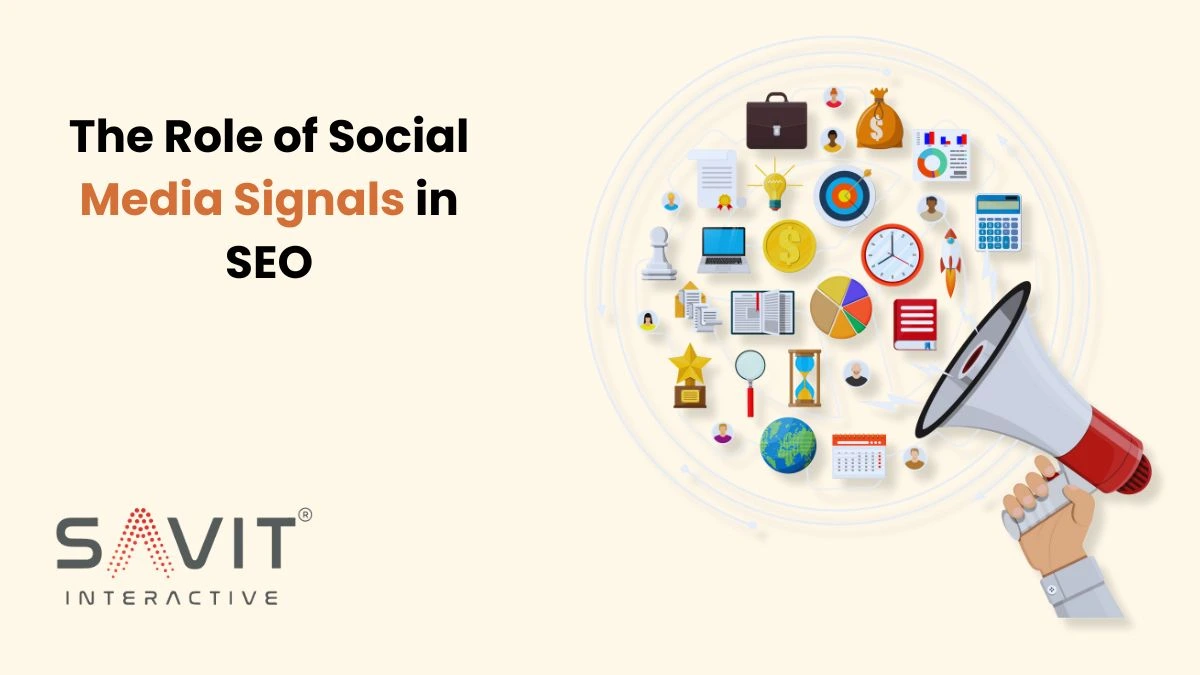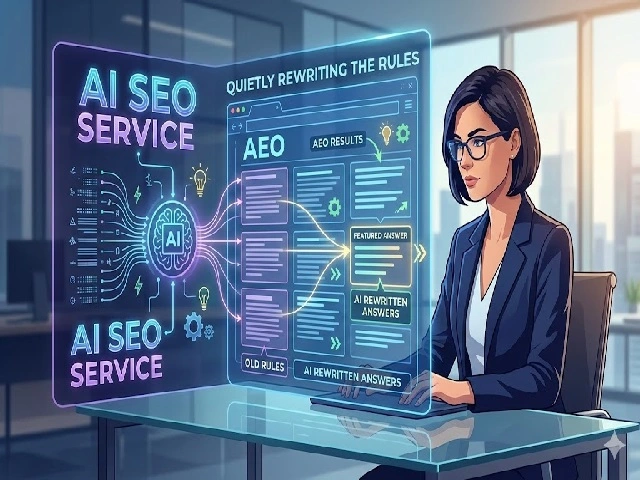Social media activities can amplify your online presence, driving traffic to your website and signaling to search engines that your content is valuable and worth ranking higher. At Savit Interactive, we believe that a robust social media presence not only engages your audience but also plays a pivotal role in enhancing your SEO efforts. When your content gets shared and liked across various social platforms, it leads to increased visibility and authority. This visibility can translate into higher search engine rankings, creating a positive feedback loop that benefits your brand.
Key Takeaways
- Social signals ranking indirectly impacts SEO by driving traffic, increasing content visibility, and enhancing brand authority.
- A good strategy for better visibility on social media includes making content that people want to share, improving social media profiles, and promoting the sharing of content.
- The growing SEO social influence of social media platforms makes them a key component of any holistic SEO approach.
- Social media can boost SEO by getting more backlinks, engaging users, and making your brand more recognizable.
What Are Social Signals in SEO?
Before diving deeper into the role of social media in SEO, let’s first define what social signals are. Social signals are likes, shares, and comments on social media that show a website’s popularity. Likes, shares, and comments on social media can help a website rank higher in search results. Social signals could improve a website’s search ranking, even though search engines don’t officially say they use them.
How Social Media Impacts SEO: A Closer Look
Social media doesn’t directly boost your website’s ranking, but it can help improve your SEO indirectly in many ways. Let’s explore how a solid social media SEO strategy can boost your online presence:
1. Increased Website Traffic
One of the most immediate effects of social media on SEO is its ability to drive traffic. When people engage with your posts on social media like Facebook, Twitter, Instagram, or LinkedIn, they often visit your website. More website visits can boost its ranking because search engines see active sites as trustworthy.
2. Content Amplification and Visibility
Creating high-quality content is the backbone of any successful SEO strategy. But great content is only effective if it’s visible to your target audience. Social media helps amplify your content by allowing users to share it with their networks. As your content spreads, it gains more visibility, increasing the chances of earning backlinks, which are vital for SEO.
3. Enhanced Brand Authority
Your brand’s presence on social media can greatly affect how trustworthy it seems to users and search engines. A well-established brand with high SEO social influence signals to search engines that it is a trustworthy and credible entity, potentially improving rankings. The more your content gets shared across social platforms, the more authority your website gains in its niche.
4. Improved User Engagement
Search engines prioritize websites that offer a good user experience. Getting likes, shares, comments, and clicks on social media shows search engines that people like your content. The more engagement your brand receives, the higher the likelihood of improved rankings.
5. Increased Backlinks
One of the most important factors in SEO is the number and quality of backlinks pointing to your website. When your content is shared on social media, it can reach more people, making it more likely that other websites will link back to it. While social media shares themselves are not backlinks, they can lead to more websites linking to your content over time.
Best Practices for a Successful Social Media SEO Strategy
To maximize the impact of social media on your SEO efforts, here are some best practices to consider:
1. Consistent Content Creation
Posting informative and engaging content regularly can increase social media interaction. Use platforms like Twitter, Instagram, and LinkedIn to distribute this content effectively.
2. Optimize Your Social Profiles
Ensure your social media profiles are fully optimized with the correct information, keywords, and a link back to your website. This helps both users and search engines understand what your brand is about.
3. Encourage Social Sharing
Incorporate social sharing buttons on your website to make it easy for visitors to share your content. This is an effective way to boost your content’s visibility and improve its chances of earning backlinks.
4. Leverage Influencers
Collaborating with influencers who have a strong SEO social influence can significantly amplify your content’s reach. Influencers with big, active followers can boost your website traffic and SEO.
5. Analyze Social Metrics
Keep an eye on your social media metrics, such as engagement rates, click-through rates, and the number of shares your content receives. Use these insights to refine your social media SEO strategy over time.
The Future of Social Media and SEO
As the digital marketing landscape continues to evolve, the relationship between social media and SEO is likely to become even more intertwined. Search engines are constantly updating their algorithms to prioritize user experience and engagement, both of which are heavily influenced by social media activity.
While social signals may not be a direct ranking factor today, their importance in the overall SEO ecosystem should not be underestimated. By implementing an effective social media SEO strategy, brands can boost their online visibility, drive more traffic, and ultimately, improve their search engine rankings.
By leveraging the power of social media, you can significantly improve your SEO performance. When executed well, your social media and SEO strategies will work hand-in-hand to elevate your brand’s online visibility.
Experience the Savit Interactive difference! We specialize in transforming your social media presence into a powerful SEO asset that attracts traffic and boosts visibility. Don’t wait for success to come to you—reach out today, and let’s create a compelling digital narrative for your brand!
FAQs
1. Does social media directly affect SEO?
Ans: No, social media does not directly affect SEO rankings, but it can help in boosting traffic, visibility, and engagement, which can improve rankings indirectly.
2. How do social signals impact my website’s SEO?
Ans: Social signals ranking refers to the engagement your content receives on social media. While they aren’t a direct ranking factor, search engines may consider the engagement as a sign of credibility and relevance.
3. What is the best way to integrate social media and SEO?
Ans: Boost your online rankings by posting good content regularly, improving your profiles, and getting followers to share your posts.
4. Can social media increase my website’s authority?
Ans: Regularly engaging and sharing on social media can boost your brand’s credibility and authority, helping with SEO.


